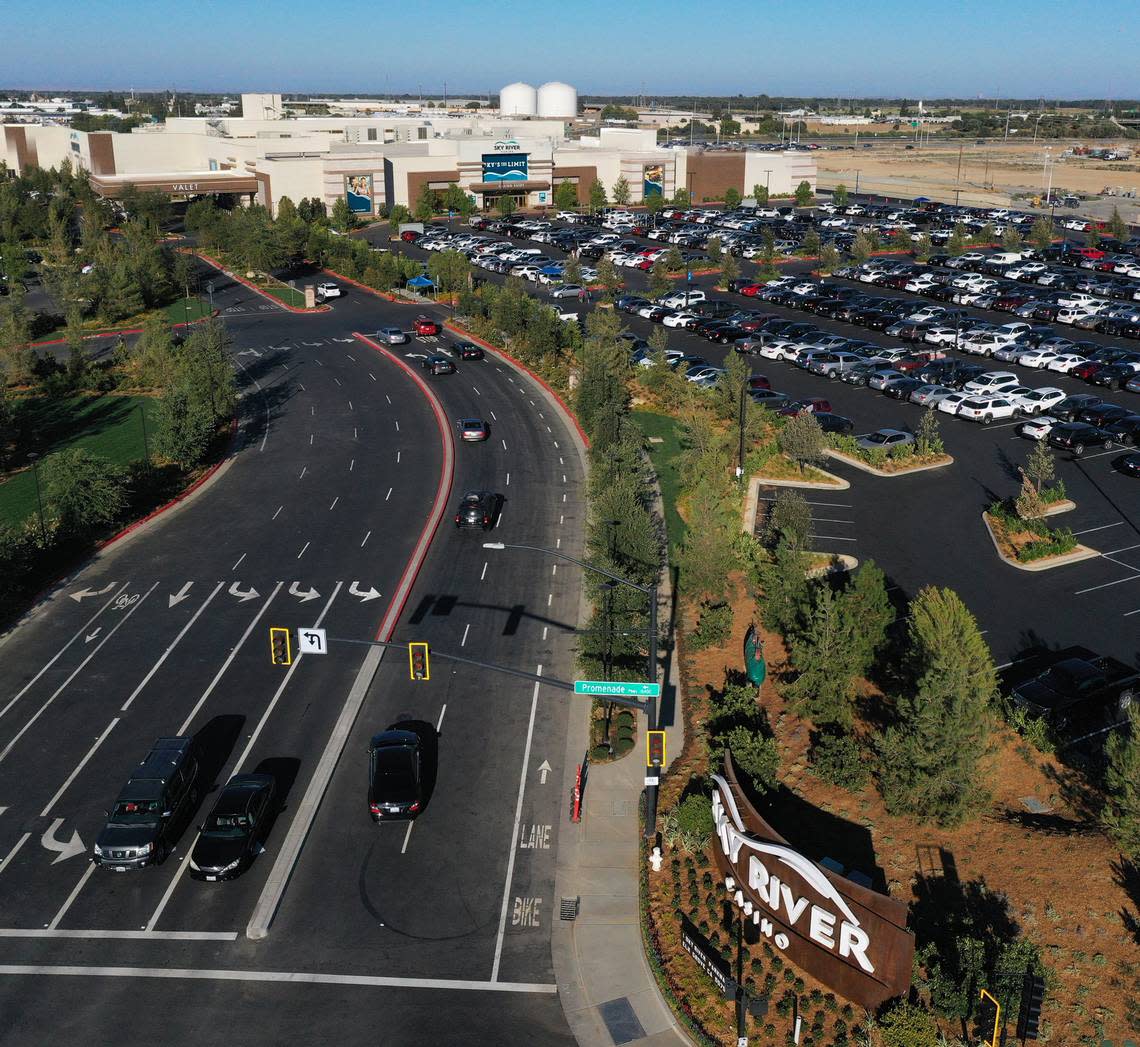‘Unwinding really backward policy:’ California abolishes decades-old parking requirements

Gov. Gavin Newsom on Thursday unraveled a decades-old statewide requirement that every home, office and business come with a specified number of parking spots — a policy that environmentalists and housing advocates say has fueled California’s car dependency and hindered its climate progress.
Newsom, just back from an international climate conference in New York, announced in a video that he signed AB 2097, which frees developers of parking requirements for new housing and businesses located within a half-mile of a public transit stop. The regulation won’t prohibit developers from building parking in their projects but will ban local jurisdictions from imposing strict off-street parking allotments.
“Basically, we’re making it cheaper and easier to build new housing near daily destinations like jobs and grocery stores and schools,” Newsom said. “This means more housing at lower prices closer to walkable neighborhoods and public transit. Again, reducing housing costs for everyday Californians and eliminating emissions from cars.”
California is one of the first states in the nation to implement such a comprehensive parking reform measure. It follows several major cities, including San Diego, San Francisco and Seattle, that were at the forefront of the movement.
“This is about course-correcting,” said Assemblywoman Laura Friedman, D-Glendale, who authored the bill. “It’s recognizing that what we’ve been doing for so long in California not only hasn’t worked, but it has made our cities less livable, more congested and less affordable – all of the things we want to avoid.”
Formal approval of the legislation, which has been in the making for more than a decade, was celebrated by environmentalists and housing advocates who say that it will lower the cost of housing production, reduce reliance on vehicles and make communities safer for pedestrians and cyclists.
Research has found that minimum parking mandates have led to an over-abundance of unused spaces, increased vehicle ownership and worsening traffic congestion.
“I’m glad the state has gotten around to unwinding this really backward policy that held our communities back and really acted counter to our climate, housing and equity goals,” said Ethan Elkind, director of the climate program at the UC Berkeley School of Law.
As Elkind sees it, the new law will make many communities across the state more walkable, bicyable and liveable because “now instead of car storage, there’s more space for people to live and work closer to transit,” he said.
Under the new regulation, cities can still impose set parking requirements if they can demonstrate that the project would adversely affect commercial parking in the area or stand in the way of a city meeting its affordable housing targets.
Opponents of the bill, including Los Angeles Mayor Eric Garcetti, voiced concerns that eliminating parking requirements could deter developers from enrolling in the city’s affordable housing incentive program, which offers to reduce parking requirements in exchange for the production of affordable housing.
In a written signing message on Thursday, Newsom said that he would be directing the Department of Housing and Community Development to monitor implementation of the bill and identify any consequences to affordable housing development in the affected areas.
Elkind emphasized that the regulation won’t completely eliminate parking from new developments but rather allow the market to determine the optimal number of parking spots needed in each project.
“What we’ve had in this country for the last half-century is way too much local land use regulation that has squelched supply in some of our high-income, high-opportunity communities,” Elkind said. “This is a part of a larger movement across the country where states are intervening to overturn really restrictive local policies on land use.”
